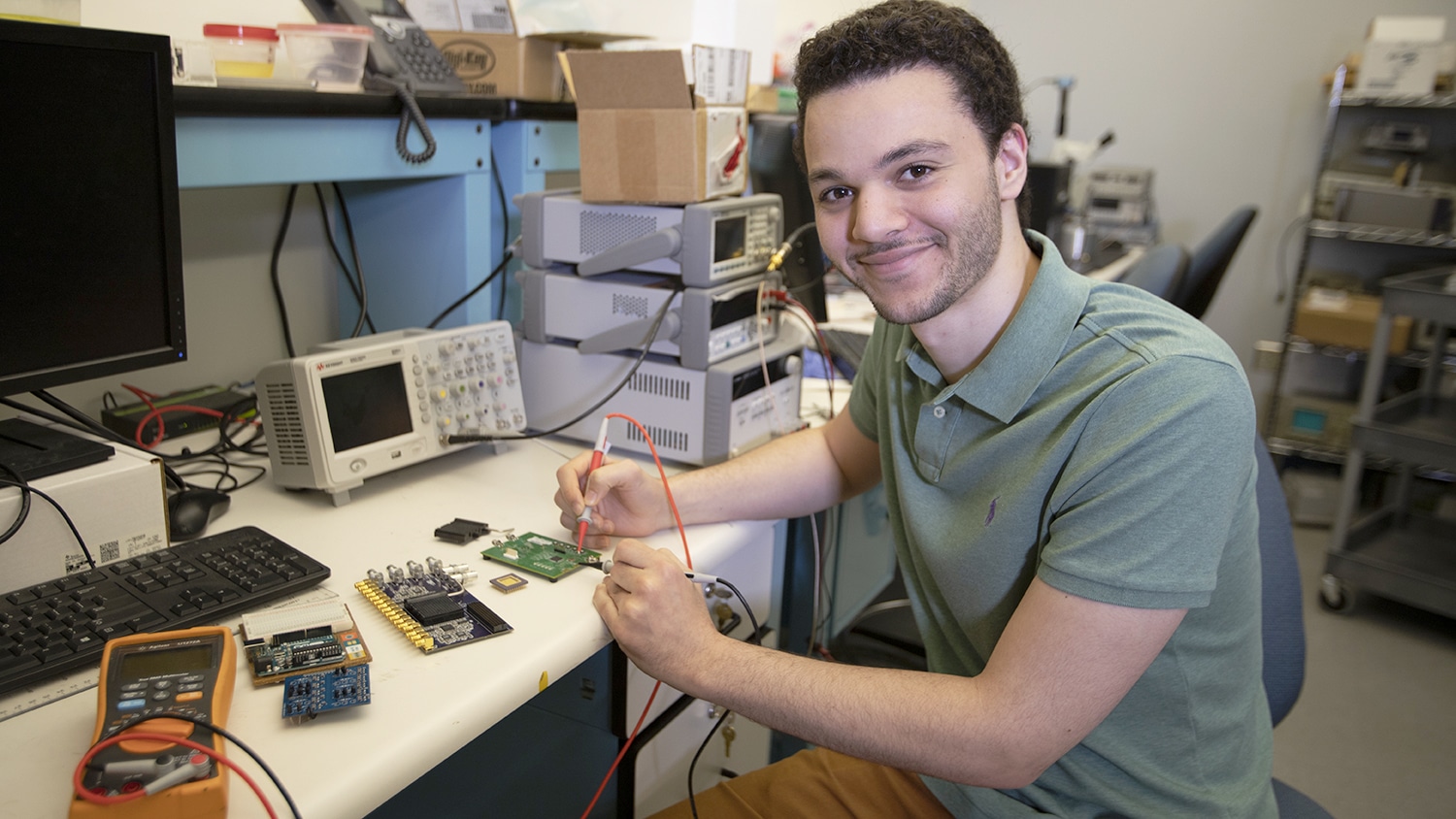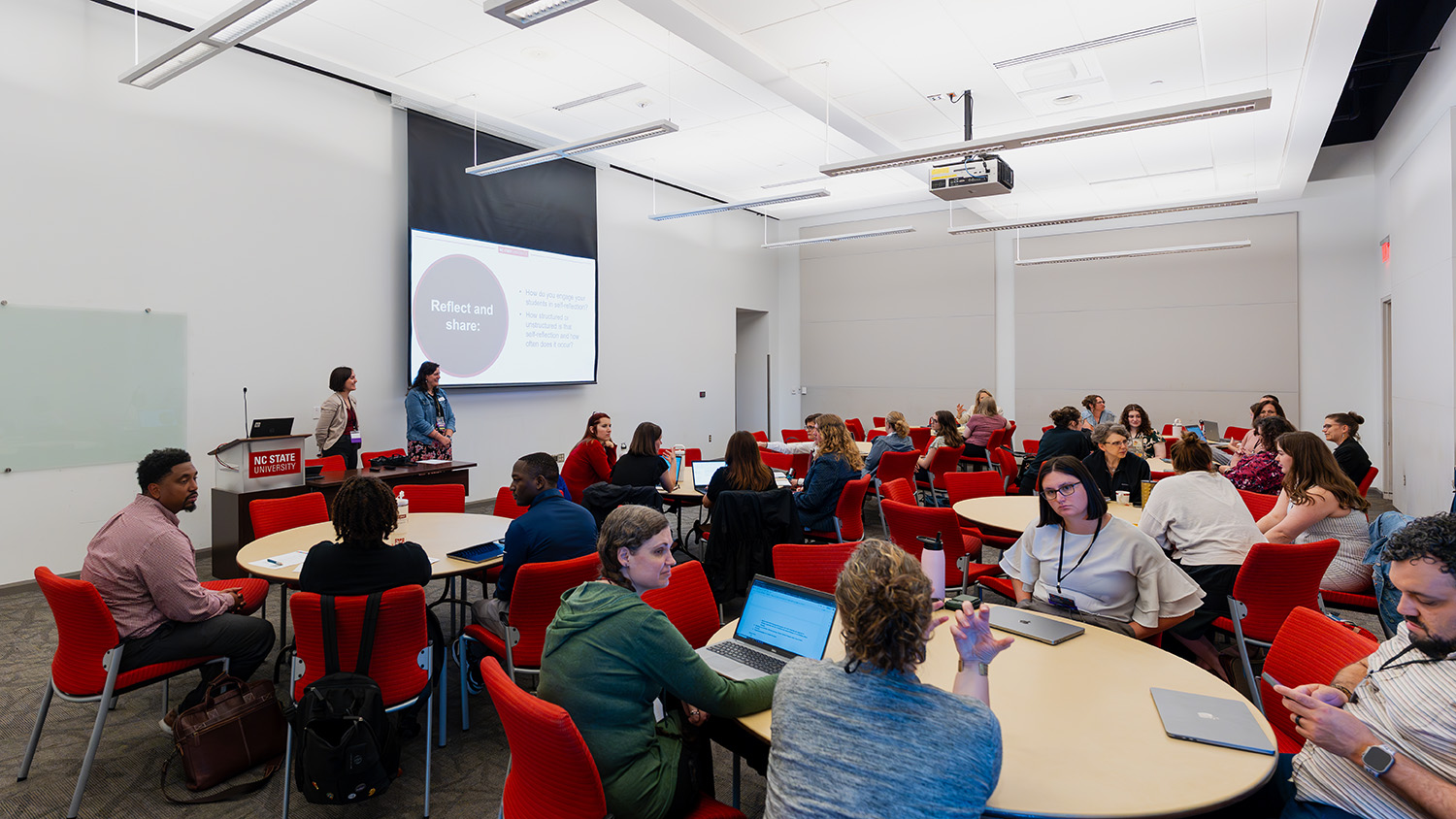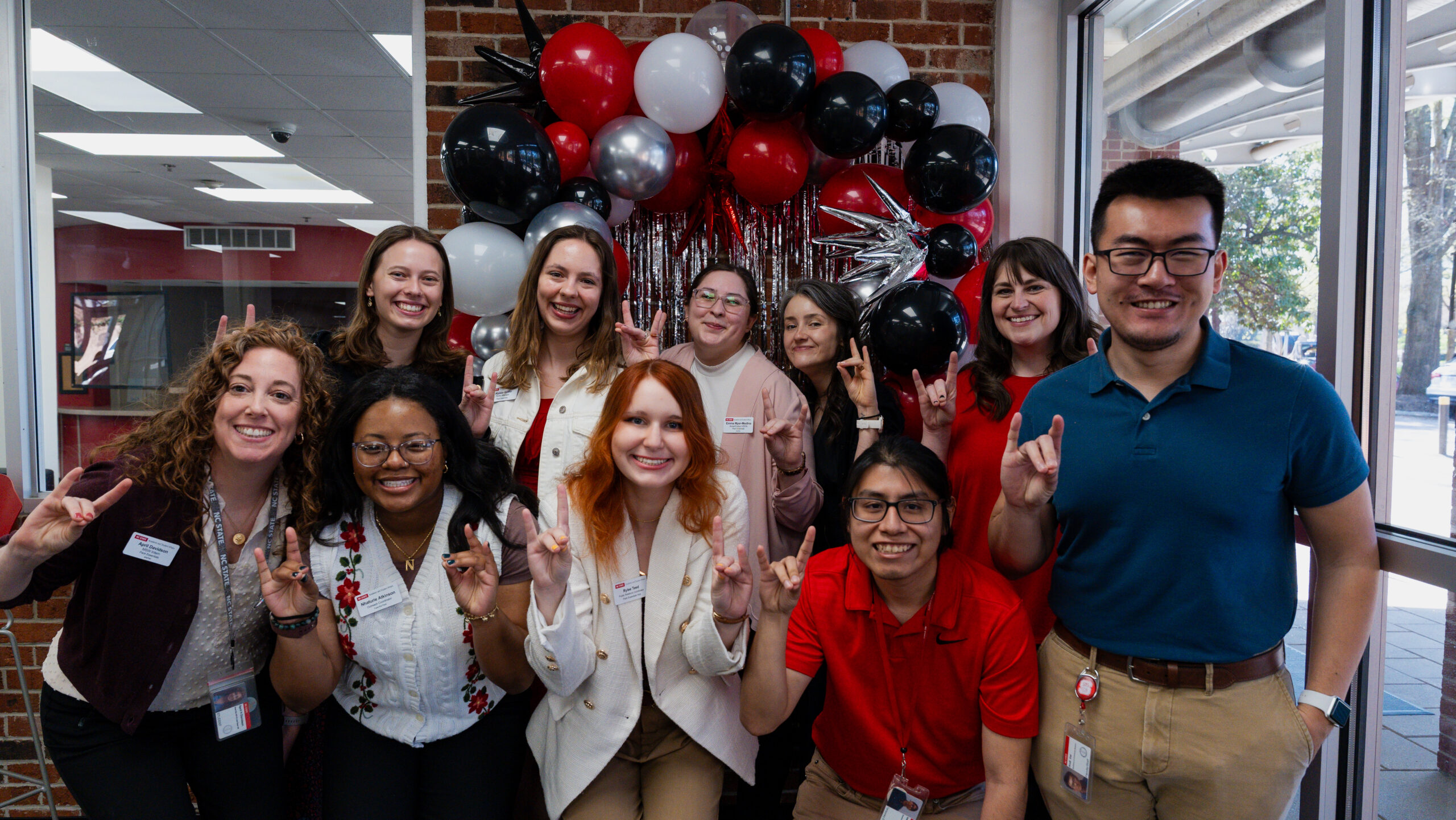Ziad Ali Named Knight-Hennessy Scholar
The Knight-Hennessy Scholars program, the largest fully endowed scholars program in the world, looks to develop a community of future global leaders to address complex challenges through collaboration and innovation.
Each year, the program offers high-achieving students from around the world the fully-funded opportunity to pursue a graduate degree at Stanford University. The program welcomed their inaugural cohort in the fall of 2018. This year, their 2019 cohort includes two NC State students. One of these scholars is Ziad Ali, a senior double majoring in electrical engineering and biomedical engineering. He sat down to talk about his time at NC State, the scholarship process, and his plans for the future.
Ali, who is from Oak Ridge, North Carolina, found his passion for electrical engineering in high school after participating in Summer Ventures. It’s a four-week summer program geared towards high school students interested in STEM subjects– science, technology, engineering, and mathematics. Later, he decided to partner his interest in electrical engineering with his interest in health and medicine. “I wanted to be able to use electrical engineering for more than just smartphones, I wanted to help directly benefit people.” This inspired Ali to pursue his second major in biomedical engineering and work to create circuits that can help solve medical problems.
“I wanted to be able to use electrical engineering for more than just smartphones, I wanted to help directly benefit people.”
-Ziad Ali
When considering what drew him to apply for the Knight-Hennessy scholarship, Ali explained: “I was very interested in attending Stanford because they place a lot of emphasis on neuroscience, and are doing a lot of research in the field with machine learning and ultrasound for the brain, which is what I’m interested in.” Ali also mentioned the scholarship seemed to be similar to the Park Scholarship he received here at NC State, which is a four-year scholarship that covers costs associated with attendance and includes a number of leadership opportunities. “I thought it would be a good transition to go from a great program here at NC State into another at Stanford.” Furthermore, Ali noted the scholarship application for the Knight-Hennessy scholarship encouraged him to explore his future life and career interests in an interesting and creative way that other funding opportunities did not. “I really appreciate the thoroughness and attention to detail of the whole application process.”
Finalists for the Knight-Hennessy Scholars program are invited out to Stanford University to attend a two-day Immersion Weekend. Scholars participate in individual and group exercises, as well as a number of other activities geared towards acquainting them with Stanford’s campus and their cohort.
“I really appreciate the thoroughness and attention to detail of the whole application process.”
-Ziad Ali
One of the best parts of the weekend for Ali was getting to attend a lecture by Robert Maurice Sapolsky, a neuroendocrinologist and professor of Biology, Neuroscience, and Neurosurgery at Stanford University. “It was one of the best lectures I have ever attended.” Ali also appreciated the improv sessions which were intended to help students relax and enjoy their time at Stanford. In addition to a number of lectures and group exercises, students participated in campus tours, individual interviews, departmental visits, and community building within their cohort. “I’m really looking forward to being with a group of people who have very different backgrounds than I do. They all want to change the world in some way, but they are all approaching it from different angles. I think learning about how they are doing it and seeing how we can work together is really interesting and can be really helpful.”

Throughout his time at NC State, Ali has also participated in a number of research endeavors. One such opportunity led him to participate in a research experience for undergraduates (REU) over a summer at Columbia University. That’s where he worked with neuroprosthetics, such as cochlear implants, which sparked his interest in exploring the brain as a circuit. “The brain is a good system to study as an electrical engineer, because it acts very much like a circuit, in that there are a lot of analogues and ways we can interact with it using electricity that we cannot do with other organs in the body.” In pursuit of this interest, he continued to seek opportunities at NC State, which led him to work as an undergraduate research assistant with a team of researchers exploring integrated microsystems for imaging, sensing, and therapy in the iMIST Lab on Centennial Campus. The tiny devices the team is working to develop hold the promise of one day being able to help people suffering from neurological disorders such as Parkinson’s disease or epilepsy.
Outside of the lab, Ali is involved with a number of campus programs including the App Development Club, which he is the current president of and helped to establish. The club teaches students about front and back-end mobile development for iOS and Android devices. Ali also helped to found the annual event PackHacks, a hackathon, or 24-hour competition, in which students express themselves and tackle challenging problems using technology. The event is open to high school and college students and welcomes participants at all levels of programming ability. The second annual PackHacks event will be held on April 13-14, 2019 at NC State in Engineering Building 2 on Centennial Campus.
For students who are interested in applying for funding opportunities such as the Knight-Hennessy scholarship, Ali offers some advice.
“Find your narrative. It’s important to find a common thread amongst impactful experiences. What lead you down your path and what motivated you to continue? Make it a compelling narrative to help you stand out.” Likewise, his second piece of advice is “don’t be afraid to be creative. It’s important to stand out and really grab reviewers attention.” Ali also highlighted leadership and service as important. He also encourages students to look beyond just asking their professors for letters of recommendation, but rather to consider people in their life who can speak to their leadership abilities. For him, one such person was his high school Quiz Bowl coach. “He oversaw me for four years on the team and could really speak to how I developed as a leader.” He also mentioned how his friends proved to be a helpful resource for feedback and encouragement. After graduation in May, Ali hopes to enjoy some time off with friends and family before he starts on his Ph.D. at Stanford University in electrical engineering this fall.
For students interested in pursuing funding opportunities, make sure to check out the Fellowship Advising Office, and for students interested in exploring research opportunities visit the Office of Undergraduate Research.


